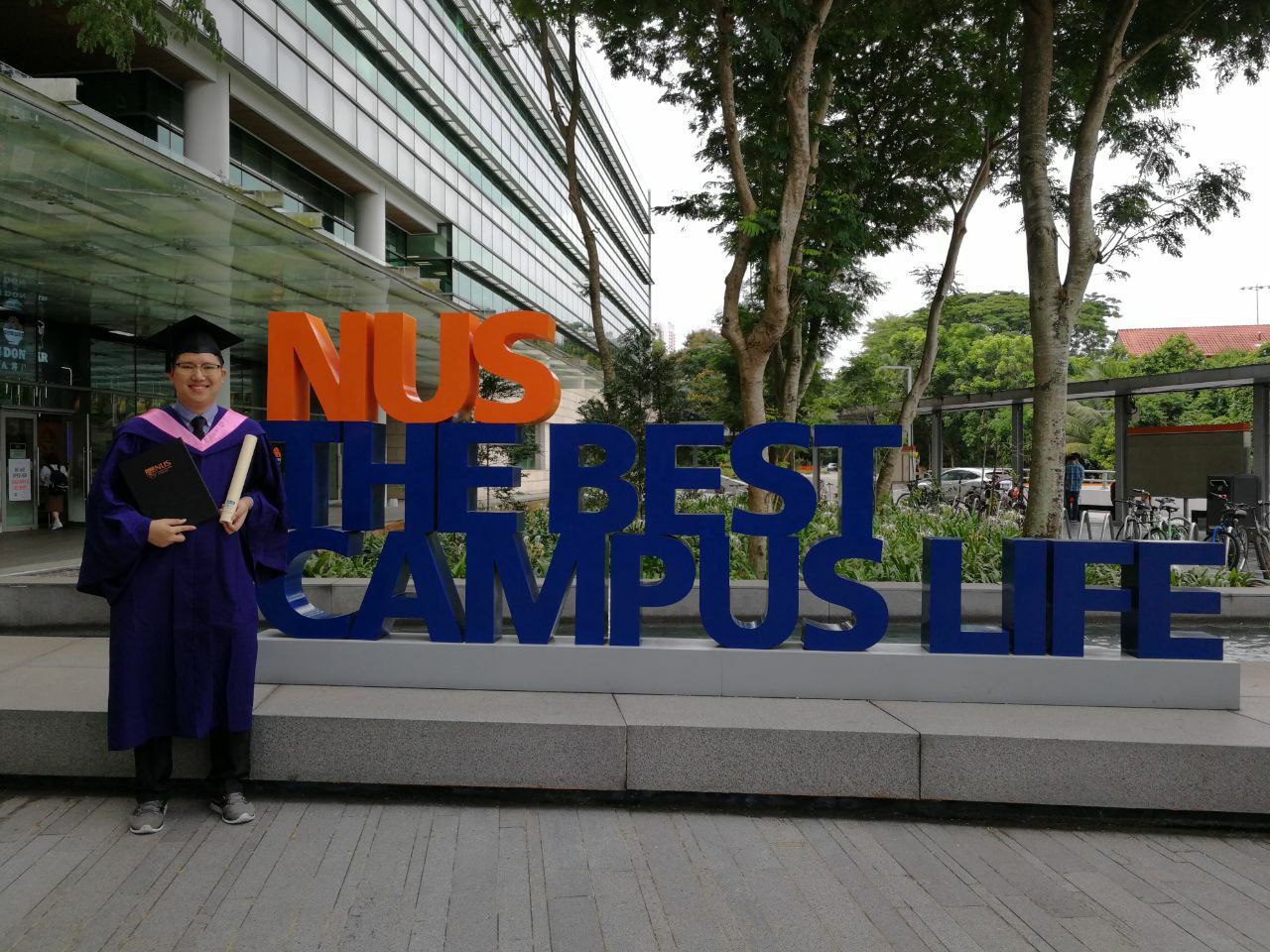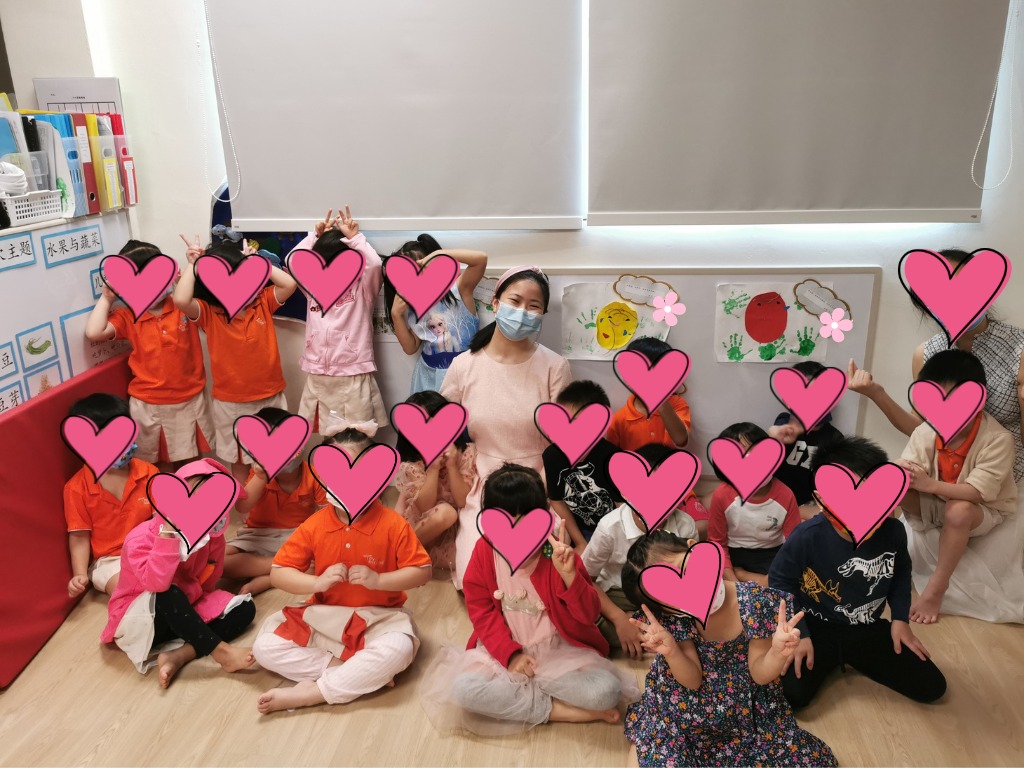According to the Graduate Employment Survey, just under 40 per cent of polytechnic students in recent years choose to pursue further education. With the employment rate after graduation across all the disciplines in 2021 being similar for polytechnic and university graduates at 92.2 per cent and 94.3 per cent respectively, what motivates so many polytechnic graduates to go to university?
A degree can help your job prospects
For Zoehl Tsen, 23, 2020 graduate from Computer Engineering at Singapore Polytechnic (SP) he said it was because studies have shown that people with degrees tend to get higher paying jobs, faster career progression, and better entry into higher level positions.

Combining his hard skills from his engineering diploma and the rigorous academic training he underwent as a Philosophy major, he now works at Meinhardt as an engineering consultant. “It’s a perfect position for someone with my pairing of diploma and degree,” said Zoehl about his first job.

Joel Chow, 23, a third year Mechanical Engineering major at Nanyang Technological University (NTU) and Aeronautical Engineering graduate from SP, had to serve his National Service before entering university. Since he was studying a related course, he was directly admitted to year two at NTU. Commenting on this arrangement Joel said: “When you do direct to year two, you still have a lot of modules to clear from year one. So, you would have to overload for at least two to three semesters.”
His girlfriend, Chong Jia Yee, 23, graduated from SP’s Food Science and Technology then got a degree in Food Technology from Singapore Institute of Technology (SIT). During her polytechnic internship, she worked with food technologists and came to know what they do, and now she works as a food technologist at A*STAR.
Some private universities and schools like SIT and Singapore University of Social Sciences (SUSS) have a trimester system where an academic year has three parts instead of two. When asked about the trimester system Jia Yee commented: “It is really fast paced, every seven weeks you have an exam. Then after 14 or 15 weeks you are supposed to get a break, but because it is a trimester… I barely had a break.”
A degree can scratch an intellectual itch

Shauna Teo, 20, Mass Communication graduate from Ngee Ann Polytechnic (NP), is in her first year at Singapore Management University (SMU) studying Psychology, Political Science and Sociology. “I am a huge nerd so I actually wanted to study a lot more before going into the workforce because I have a crippling fear of being an adult… By studying I’m prolonging [the delay] of my adult life and living out my student life,” she explained.

Others like 20-year-old Jade Lam, a Temasek Polytechnic (TP) Medical Biotechnology graduate, wants to pursue a career in academia. Double major in Life Sciences and Philosophy at NUS College of Humanities and Science, she appreciates holistic learning: “I’m taking two completely different majors. I even have a minor in Spanish.” She added that she would like to stick to academia in terms of research or teaching, so university is the next step to get there.
A degree comes with challenges: stress, academics and finances
Do you find your current course difficult? Well, Zoehl testified that polytechnic can seem like a cakewalk compared to university.
Jade said: “The climb is huge, and this isn’t just for poly kids but my Junior College (JC) friends as well.” Zoehl mentions that JC students have an edge over poly students because their teachers had taught them mental frameworks that can help them in university.
According to Shauna, something special about studying in polytechnics is that work is more project based. She reflects that project work allows one to practise their communication skills while university emphasises in readings and applications. As a social science student, she has as many as 70 pages of readings a week.
On top of that, a degree is not cheap. According to financial planning and education firm Smart Wealth Singapore, as of 2022, Singapore citizens pay an average of $37,850 in tuition fees for a four-year general degree.
For some, working is the better option

Ng Shu Ting, 20, took a gap year to try working in her industry of interest. A designer and 3D artist at Bandwagon Labs, she sees herself as the token Generation Z representation in her company. She thinks that she brings “energy” and “fresh ideas” to the table. Working has shown Shu Ting how to make a living off the 3D skills she acquired in school.
Titled “MoonKnight” this 3D render was made from scratch.
Artwork credit: Ng Shu Ting
Also in the arts field, Brenda Mok, 22, studied Electrical Technology (Light and Sound) at Institute of Technical Education (ITE) West before getting a diploma in Arts and Theatre Management. Currently a theatre freelancer, she shared “I have more exposure and more experience outside, I get to know more people, make connections so I’m not just isolated in school.”


For others, they have a bond to serve
Angel Tang, 22, is serving a three-year bond with the Early Childhood Development Agency as a preschool teacher. She graduated from Early Childhood Development and Education in 2020 and works at Little Seeds Preschool. In her industry, building relationships is key. Her experience working before entering university has given her realistic goals and expectations of her future in the field.

After a year of working in the industry, she has decided that she wants to go to university. She has been accepted to James Cook University for a degree in Early Childhood Education and will be enrolling in 2023.
Seniors advice to help you choose your path
Do your research! Joel knows of peers who have dropped out because they couldn’t cope. “They transferred [into mechanical engineering] from other courses and they couldn’t cope with the pressure…Uni life is pretty great if you have a balance.”
Shauna stresses on defining your priorities, to weigh between passion and commitment. She believes that to survive university, you need passion for your specialty and if you work, you need to commit to your job to establish yourself.
Brenda urges: “Don’t be afraid, just go for it. Don’t worry about making mistakes because it’s just an occupation, you can always change it.”
Questions to consider when deciding your path
- Is a degree necessary for your industry of choice?
- Would you benefit more from theoretical studies or industry experience?
- Do you like the contents of this course? Can you see yourself doing the assignments?
Jade says it best: “[Are you] up for studying for the next three to four years? Don’t go to uni just because you should, go because you want to. It’s okay to not know… what you want to do. It’s important to listen to yourself and not just what society deems as a norm.”
There is no such thing as the correct path. Get to know yourself and your priorities and you will know what’s best for you.
Proofread by: Danial Roslan, Kimberley Caleon and Lim Ke Wei
